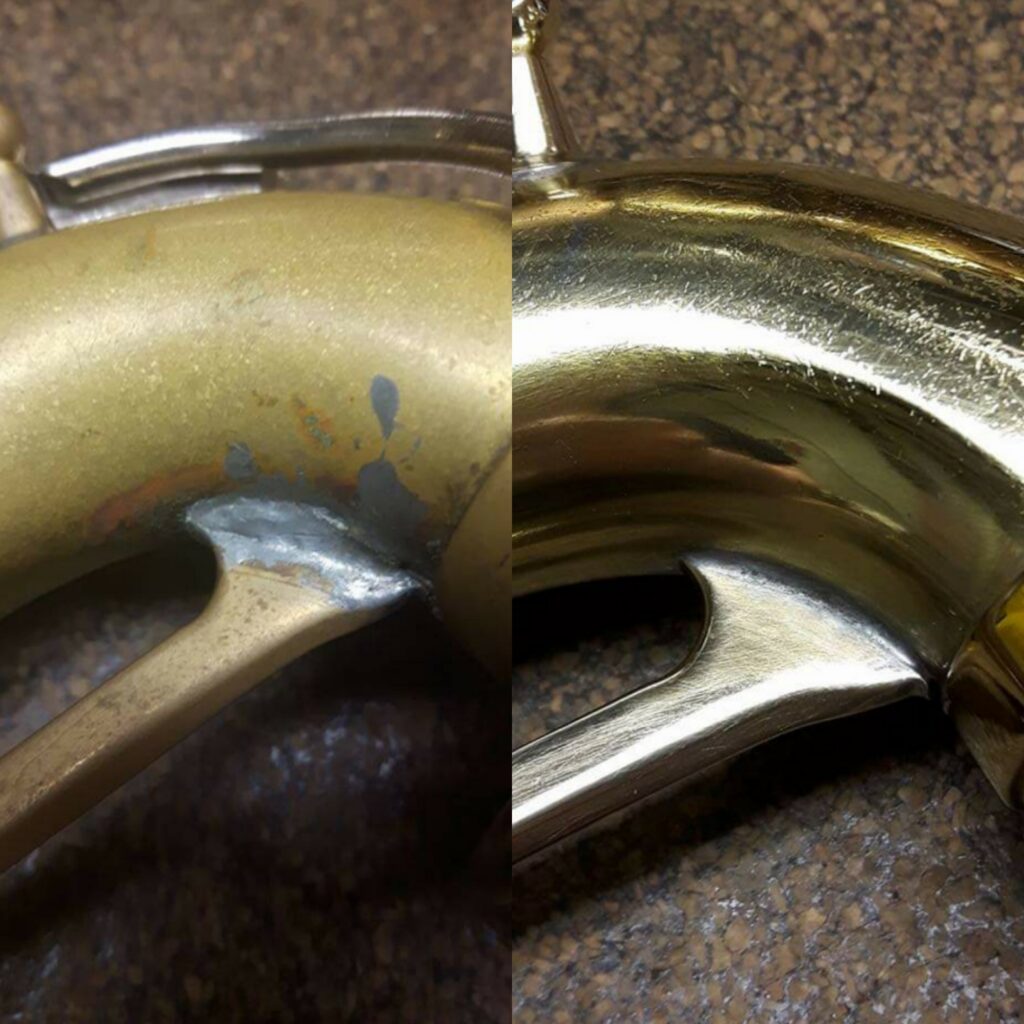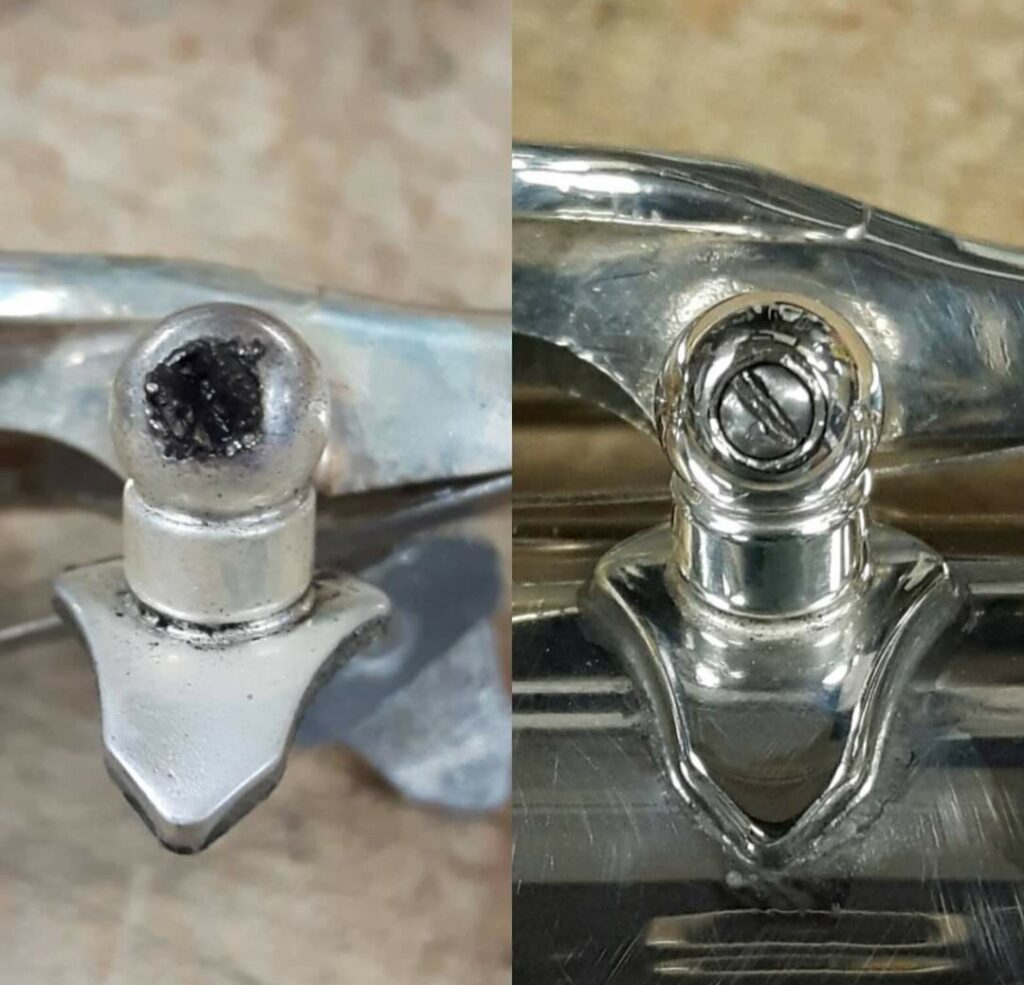Every post on the body of and musical instrument is soldered on (Not welded. A popular misconception). The parts of keys themselves are brazed together, which is a similar procedure, but it requires much more heat and different supplies. When soldering, which is the method of joining two pieces of metal together by melting a softer tin/lead mixture in between them, the prep work is the most important part of the procedure. For a start both pieces must fit together as close as possible. This will ensure that the solder has a completely touching surface area to bond to. Secondly, the pieces must be as clean as you can make them. If the pieces are dirty the solder won’t hold, no matter how much heat you use. Next you have to use flux. Flux is used to prevent the metals from oxidizing when they are heated, which will also prevent the metals from joining. The rest is timing. You have to get a feel for the amount of heat, the direction of the heat, where to place the torch and when to apply the solder to the pieces you are joining. Without doing these steps, you end up with a burned, unjoined mess of an instrument. Soldering on silver is even more difficult. Silver will show all of your mistakes right away. As I have said in this blog many times before, this has taught me something true about life. It’s all in the prep work.

When you are undertaking a task (instrument repair or otherwise) if you launch yourself into it without doing any practice or research, you are likely to get very different results than if you read, watch, listen, plan and practice. Make no mistake, I’m not saying to never be spontaneous, I’m just saying think about what it is you are doing and attain as much information as you can ahead of time. For example, if you want to be a success (whatever that means to you) you are unlikely to show up to Home Depot in your pick up truck grab a ton of 2×4’s and start building your dream home. You should maybe consult with a contractor, draw up some plans or at the very least read a book on building houses. When I am playing with bands and I take a solo, of course I am improvising and allowing myself to hear and feel the music and be as spontaneous as I can. But what goes unseen is the hours of personal practice and full band rehearsal that goes into it before hand.

Another example from the world of instrument repair is when I am seating pads on tone holes. Obviously, the goal of a quality repair is to get the pads to seal all the way around a tone hole with a light touch. But the actual seating process is only the last step in the set up. First, I make sure the rod for the key fits snugly in the head of the post, then I make sure the faces of the post are flat. Then I make sure the keys are swedged perfectly between the posts and the rod fits perfectly in the key tube. Then I make sure the key cup is flat and not warped (as they often are). Then I make sure the tone hole in perfectly flat and smooth. Once that is all done, I make sure the key cup is centred over the tone hole, and that the spring tension is at the correct strength. Then I select the pad which not only fits the key cup perfectly but is also as even across its surface as possible. I’ll iron the pad to make sure the skin is tight on top of the felt and then I make sure there is the right amount of shellac in the key to give the pad the right amount of protrusion out of the key to connect with the tone hole. Once you have done all these steps, the pads will almost seat themselves.
The prep work for whatever you are doing is essential. Again, this is why patience is so important. You crawl before you can walk, you walk before you can run. We often get so consumed by what we want, we don’t always slow down and ask ourselves if we have set up the proper circumstances for success in the first place. It doesn’t matter how much you want that dream job, if you don’t have the experience to warrant the appointment. If you haven’t practiced the tunes for the gig, you won’t put on the best show you can. Take a minute (and a deep breath), slow down and ask yourself if you’ve done the prep work. You might get it fast and dirty, but remember, silver will show all your mistakes.

